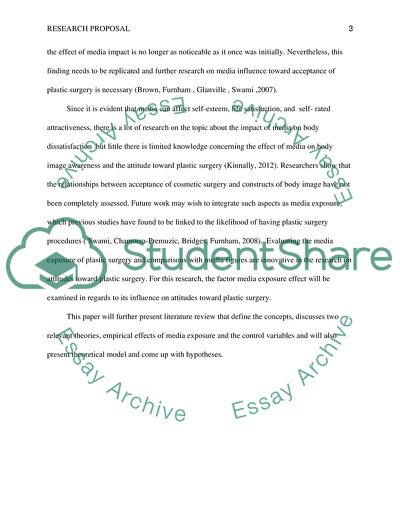Cite this document
(The Effect of Media on Attitude toward Plastic Surgery among Young Research Proposal Example | Topics and Well Written Essays - 2500 words - 1, n.d.)
The Effect of Media on Attitude toward Plastic Surgery among Young Research Proposal Example | Topics and Well Written Essays - 2500 words - 1. https://studentshare.org/sociology/1864433-research-proposal
The Effect of Media on Attitude toward Plastic Surgery among Young Research Proposal Example | Topics and Well Written Essays - 2500 words - 1. https://studentshare.org/sociology/1864433-research-proposal
(The Effect of Media on Attitude Toward Plastic Surgery Among Young Research Proposal Example | Topics and Well Written Essays - 2500 Words - 1)
The Effect of Media on Attitude Toward Plastic Surgery Among Young Research Proposal Example | Topics and Well Written Essays - 2500 Words - 1. https://studentshare.org/sociology/1864433-research-proposal.
The Effect of Media on Attitude Toward Plastic Surgery Among Young Research Proposal Example | Topics and Well Written Essays - 2500 Words - 1. https://studentshare.org/sociology/1864433-research-proposal.
“The Effect of Media on Attitude Toward Plastic Surgery Among Young Research Proposal Example | Topics and Well Written Essays - 2500 Words - 1”. https://studentshare.org/sociology/1864433-research-proposal.


